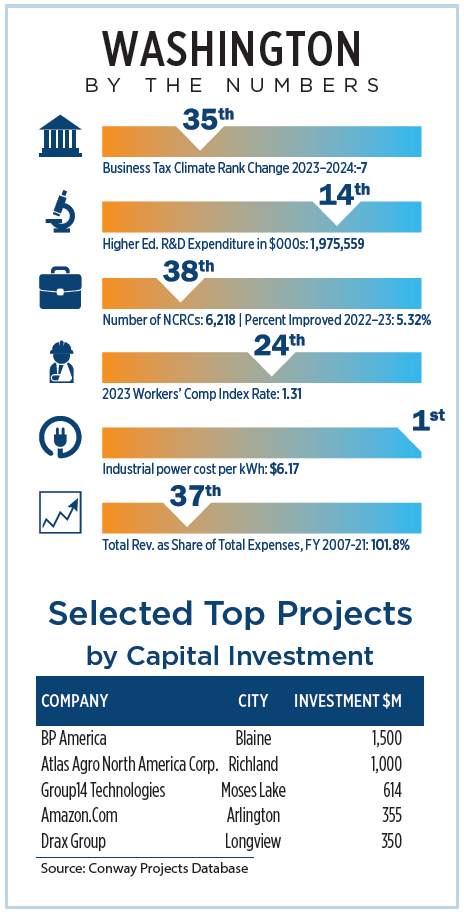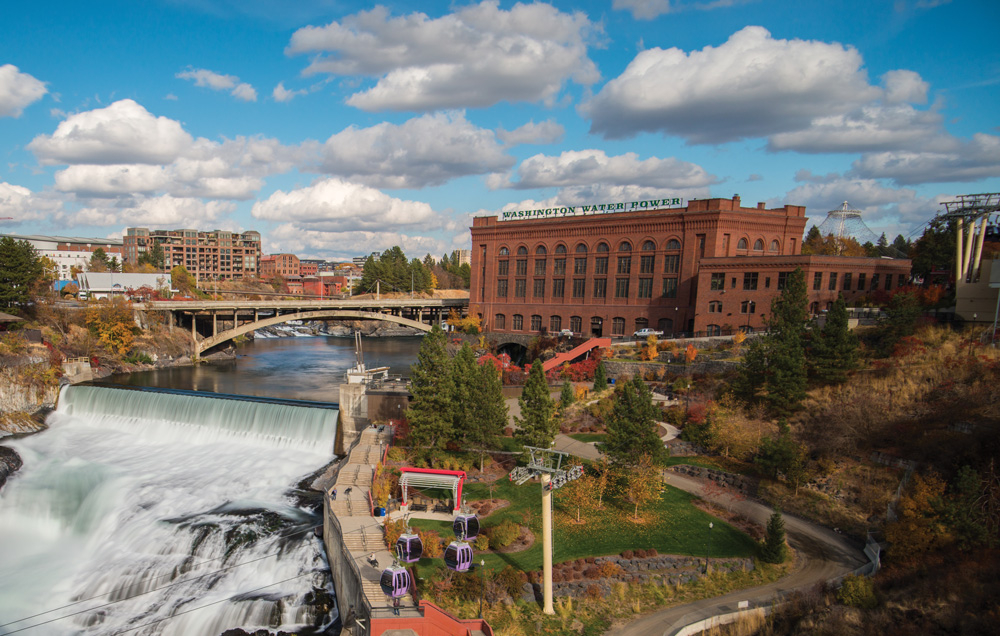The city continues to ring up significant aerospace accomplishments.
Earning a designation as one of 31 U.S. tech hubs established through the CHIPS and Science Act is no small feat. Out of nearly 200 applicants, the American Aerospace Materials Manufacturing Center in Spokane, the No.5 largest aerospace cluster in the nation, was one of the few selected. Nearly 50 Spokane-area organizations — including businesses, universities, tribes and labor unions — collaborated on the proposal, marking a pivotal win for the Inland Northwest

Matching the Momentum
Collins Aerospace is among the more than 50 aerospace suppliers within 20 miles of Spokane. For the last 25 years, the subsidiary of RTX has grown alongside the region’s burgeoning cluster, playing a significant role in the local economy.
“C/C brakes are engineered to be lighter weight and work complementary with other Collins-made programs, such as Ascentia,” a software used to determine a predictable maintenance period, says Nichol Savko, a licensed professional engineer and the general manager and director of operations at Collins’ Spokane facility. “The more ways we discover to remove weight from the aircraft, the less fuel the aircraft requires. This, in turn, increases overall cost savings for the customer.”
At the company’s Spokane operations — one of three facilities nationally that play a role in carbon brake production — engineers and technicians have spent the last two-and-a-half decades manufacturing carbon-carbon composite (C/C) brakes for aircraft.
With the growing demand for this innovative product, Collins initiated a $200 million investment last May to expand its Spokane operations over a multi-year period. The company plans to add 70,000 sq. ft. of manufacturing space, expanding the site’s footprint by 50%.
“Collins’ strategic goals are focused on continued support for our customers: Airbus, Boeing and the U.S. government. We project strong growth ahead and this expansion will support our customers’ critical missions,” says Savko.
While the company supports the tech hub designation, Savko says that it held no sway in their decision to expand in Spokane, as many of the factors that fueled this expansion align with the original reasons the location was sited 25 years ago.
“This is an existing facility in an area with strong infrastructure and utilities, low humidity and [which] continues to have a strong talent pool,” explains Savko. “The Santa Fe Springs, California, site is a more specialized site, with lower production volumes. Pueblo, Colorado, manages large commercial programs, military programs and R&D capabilities. And Spokane is our second-largest site and has a higher commercial volume. This expansion balances Pueblo and Spokane in terms of size and customer demand.”
Managing the Machine
Although the new facility will be outfitted with innovative automation equipment, including high-tech distributed control systems (DCS), Savko stresses that this technology is designed to assist employees, not replace them. It’s easy to think of these tools as possibly replacing human jobs, he says, “but more and more, these types of advancements are removing humans from positions with repetitive movements or situations where a machine is better suited.
“The positive result,” he says, “is that you have a person who is then managing the machine, managing critical maintenance and updates. So that person is then problem-solving and stepping in to provide strategic oversight that cannot be replaced by a machine.”
Once the initial phase of this project is completed in 2027, Collins’ plans to hire an additional 80 employees, primarily machining, coating and control room operators; chemical, mechanical, controls and industrial engineers; PLC, CNC and automation technicians; and specialized maintenance mechanics.
“We have been actively developing relationships with local schools, high school CTE [career & technical education] programs and college technical programs, as well as sponsoring initiatives such as the Production Manufacturing Institute, which gives high school students a summer experience learning manufacturing skills across the region,” says Savko. “Building the pipeline in Spokane is important to me. It’s about employing those who live in the same community as I do. There are a lot of opportunities within Collins and starting at the high school level is a good place to make kids aware of opportunities they may be unfamiliar with.”
On August 27, local government officials and community leaders joined Collins leadership for a groundbreaking ceremony.

